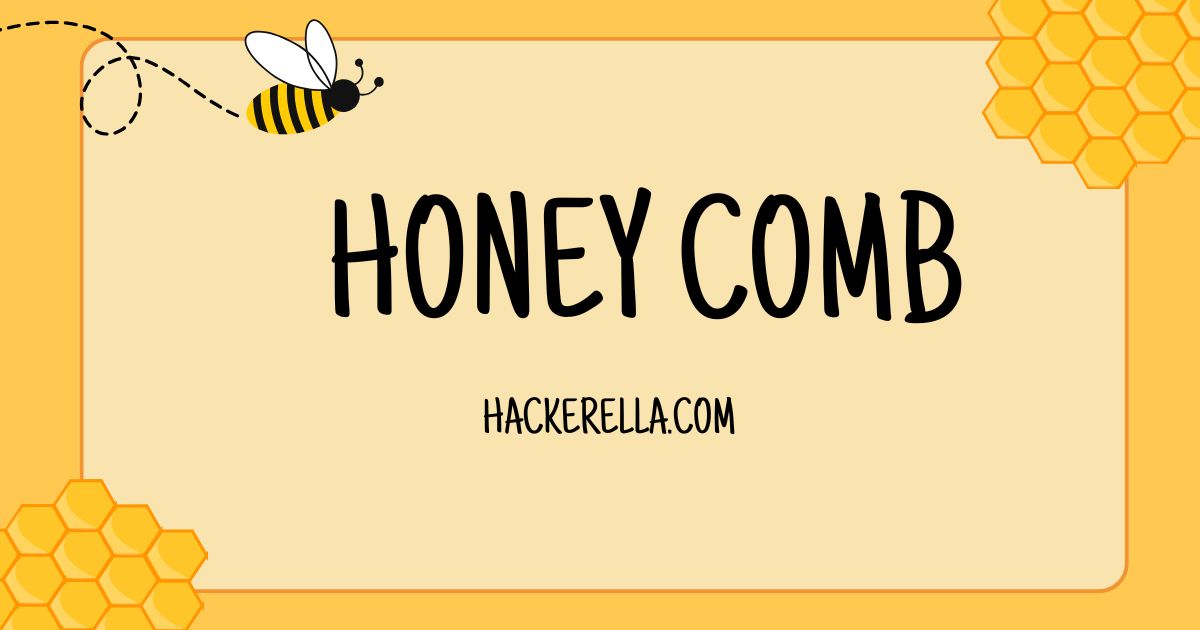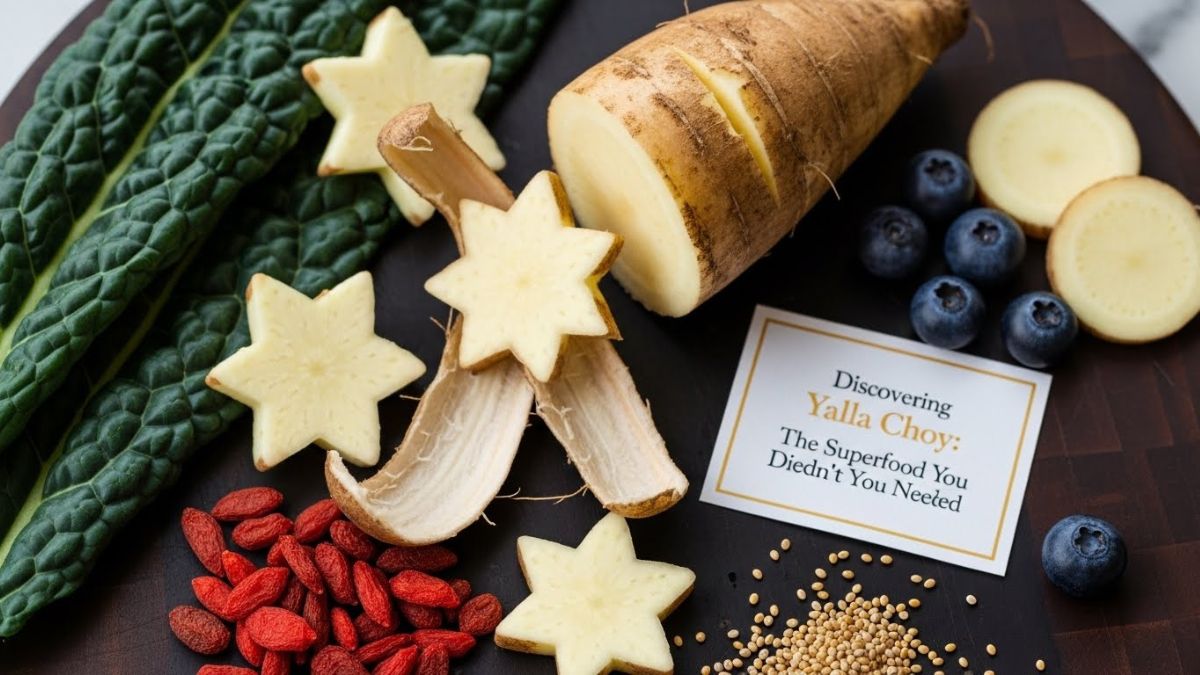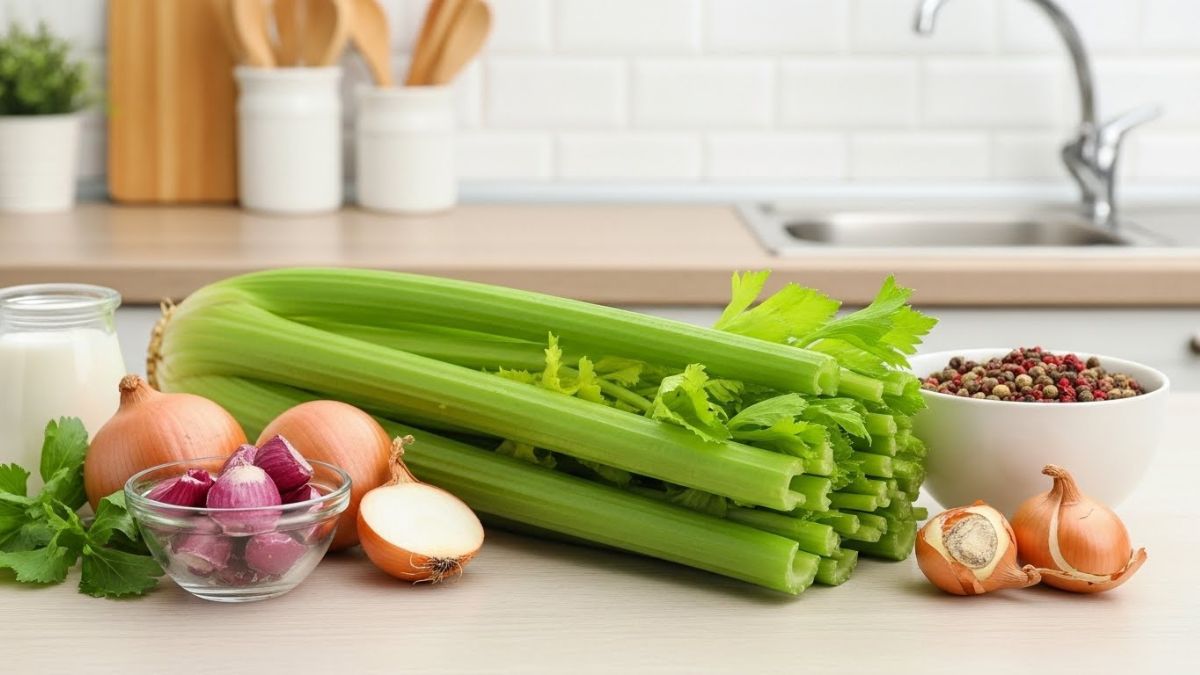honey comb is a fascinating natural creation that holds numerous benefits for both humans and the environment. This intricate structure, built by honeybees, is not only the foundation of their hive but also a source of raw honey, beeswax, and other valuable nutrients. From its unique geometric design to its remarkable health advantages, honeycomb has captivated people for centuries. In this article, we will explore everything you need to know about honeycomb, including its formation, uses, benefits, and much more.
What Is Honeycomb?
Honeycomb is a natural wax structure created by honeybees to store honey, pollen, and larvae. It consists of hexagonal cells made from beeswax, which are perfect for maximizing storage space while using minimal material. These hexagonal cells are filled with golden honey, making honeycomb both visually appealing and incredibly nutritious.
How Do Bees Make Honeycomb?
Bees produce honeycomb using a process that involves teamwork and precision. Worker bees secrete beeswax from special glands in their abdomen. They then chew and mold the wax into hexagonal cells, ensuring a strong yet lightweight structure. The perfect hexagonal shape is not by accident—it is nature’s most efficient way to pack storage into a confined space without wasting materials.
Nutritional Value of Honeycomb
Honeycomb is rich in essential nutrients, making it a powerhouse of health benefits. It contains raw honey, beeswax, pollen, and propolis, all of which contribute to its nutritional profile. Some key nutrients found in honeycomb include:
Carbohydrates – Provides a natural energy boost
Antioxidants – Helps combat free radicals and reduce inflammation
Vitamins and Minerals – Contains vitamin C, B vitamins, iron, and magnesium
Enzymes – Supports digestion and immune function
Health Benefits of Honeycomb
Honeycomb is not just a treat for the taste buds; it also offers a wide range of health benefits.
Boosts Immune System
Raw honey found in honeycomb contains antimicrobial and antibacterial properties, helping to strengthen the immune system and fight infections.
Supports Heart Health
Studies suggest that consuming honeycomb may help lower bad cholesterol (LDL) and increase good cholesterol (HDL), reducing the risk of heart disease.
Promotes Digestive Health
The natural enzymes in honeycomb support gut health by aiding digestion and promoting the growth of beneficial bacteria.
Enhances Skin Health
Beeswax, a major component of honeycomb, has moisturizing and healing properties that can improve skin hydration and treat minor wounds.
Natural Energy Source
Honeycomb is an excellent natural energy booster due to its high carbohydrate content, making it ideal for athletes and those needing quick energy.
How to Eat Honeycomb
Eating honeycomb is simple, and it can be enjoyed in various ways:
Raw – Chew on a small piece to experience its full flavor and texture.
With Cheese – Pair it with cheese and crackers for a gourmet treat.
On Toast – Spread it on warm bread for a delicious breakfast.
In Smoothies – Blend it into smoothies for added natural sweetness.
With Yogurt – Mix it into yogurt for a nutritious snack.
Is It Safe to Eat Beeswax?
Yes, beeswax is completely safe to eat in small amounts. While it is not digestible by the human body, it passes through without harm. Many people enjoy chewing honeycomb for its texture and natural sweetness.
How to Store Honeycomb
Proper storage helps maintain the freshness of honeycomb. Keep it in an airtight container at room temperature, away from direct sunlight. Honeycomb does not spoil easily due to its natural antimicrobial properties.
The Difference Between Honeycomb and Regular Honey
While both honeycomb and liquid honey come from the same source, there are key differences:
Honeycomb – Contains raw honey encased in beeswax, preserving all its natural enzymes and nutrients.
Regular Honey – Often processed and filtered, removing some beneficial components like pollen and propolis.
Uses of Honeycomb Beyond Eating
Honeycomb is incredibly versatile and can be used for more than just food. Some common uses include:
Skincare Products – Found in lip balms, lotions, and creams.
Candle Making – Beeswax from honeycomb is used to make high-quality candles.
Wood Polish – Acts as a natural polish for wooden furniture.
Lip Balm – Protects and hydrates lips naturally.
Is Honeycomb Environmentally Friendly?
Yes! Honeycomb is an environmentally friendly product. Bees naturally produce it without harming the environment, and beekeeping supports pollination, which is crucial for plants and crops. Sustainable beekeeping practices ensure that honeycomb can be harvested without negatively affecting bee populations.
The Role of Honeycomb in Beekeeping
Beekeepers rely on honeycomb to extract honey while maintaining a healthy hive. Some beekeepers leave portions of honeycomb in the hive to support the bees’ food supply, ensuring the colony thrives.
Potential Risks of Eating Honeycomb
Although honeycomb is generally safe, there are a few things to keep in mind:
Botulism Risk for Infants – Like raw honey, honeycomb should not be given to babies under one year old.
Allergies – Those allergic to bee products should avoid honeycomb.
Overconsumption – Eating too much can lead to excess sugar intake.
Where to Buy Honeycomb
Honeycomb is available at local farmer’s markets, health food stores, and online retailers. Always look for raw, unprocessed honeycomb to ensure maximum benefits.
Conclusion
Honeycomb is truly a marvel of nature, offering a delightful taste and numerous health benefits. Whether you enjoy it raw, use it in recipes, or incorporate it into skincare, honeycomb is a valuable natural product worth exploring. By choosing sustainably sourced honeycomb, you also support bees and their vital role in our ecosystem.
FAQs
Can I eat the wax in honeycomb?
Yes, beeswax in honeycomb is edible, though it is not digestible. Many people enjoy chewing it for its texture and natural sweetness.
How long does honeycomb last?
When stored properly, honeycomb can last indefinitely due to honey’s natural preservative properties.
Does honeycomb taste different from regular honey?
Yes, honeycomb has a richer, more complex flavor because it contains raw honey, pollen, and propolis.
Is honeycomb good for diabetics?
Honeycomb contains natural sugars, so diabetics should consume it in moderation and consult their doctor.
Can I use honeycomb for skincare?
Yes, beeswax from honeycomb is commonly used in natural skincare products for its moisturizing and healing properties.















